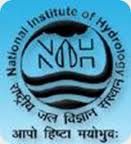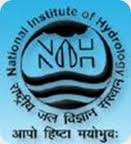Uttarakhand
Climate variability and change in the Himalayas: Community perceptions and responses - An ICIMOD study
Posted on 22 Feb, 2012 05:30 PMThe general objectives of the assessments were:
The status of glaciers in the Hindu Kush-Himalayan region - A report by the ICIMOD
Posted on 17 Feb, 2012 03:00 PMThe HKH region is one of the most dynamic, fragile, and complex mountain systems in the world as a result of tectonic activity and the rich diversity of climates, hydrology, and ecology. The high Himalayan region is the freshwater tower of South Asia and has the highest concentration of snow and glaciers outside the polar regions giving it the name Third Pole.
Balati glacier, Pithoragarh district, Uttarakhand (Source: Uttarakhand and I)
National symposium on "Water Resources Management in Changing Environment -2012", IAH, February 8-9, 2012, Roorkee
Posted on 07 Feb, 2012 02:03 PMOrganizer: Indian Association of Hydrologists (IAH)
Venue: National Institute of Hydrology (NIH), Roorkee

Description:
Water resources management requires a holistic and integrated view that considers the surface and groundwater together and also the direct human / indirect human needs. The sustainable management of water resources should base on an integrated approach linking development and protection of the natural environment, on the participation of all actors and concerned people and on the recognition of the economic and social value of water. We must promote the integration of all aspects of planning, management and protection of water resources by developing plans which aim to satisfy basic needs and to promote equitable and effective distribution of water resources, ecosystem protection and maintenance of the water cycle. Climate change, land use change and the hydrological variability of water's distribution and occurrence are natural driving forces that, when combined with the pressures from economic growth and major population change, make the water resources management a challenge. Water management plans should consider the best existing practices and the most advanced scientific breakthroughs.
National seminar on decentralized governance in water and sanitation in rural India, National Institute of Adminstrative Research, June 26-28, 2012, Mussorie
Posted on 07 Feb, 2012 12:13 PMOrganizer: National Institute of Administrative Research (NIAR), Mussoorie
Ministry of Drinking Water and Sanitation, Govt. of India
Venue: Lal Bahadur Shastri National Academy of Administration, Mussoorie
![]()
Description:
The National Institute of Administrative Research, Lal Bahadur Shastri National Academy of Administration, Mussoorie in collaboration with the Ministry of Drinking Water and Sanitation, Govt. of India is organizing a three days National Seminar on Decentralized Governance in Water and Sanitation in Rural India from June 26-28, 2012 at Mussoorie. The National Seminar is dedicated to academic discourse and practitioner engagement on Governance issues in the Water and Sanitation Sector. The papers received will be presented and documented in the form of a book after a peer review.
Three days training course on lake conservation at NIH Roorkee, March 14-16, 2012
Posted on 02 Feb, 2012 01:48 PMOrganizer: National Institute of Hydrology (NIH)
Venue: National Institute of Hydrology, Roorkee

Description:
The increasing demand for fresh water due to ever growing population, calls for proper conservation and management of all the available fresh water resources, including lakes. Lakes need special attention as they are quite often the catalysts in the development of the region by supplying water for variety of uses such as drinking and civil water supply, industrial supply, irrigation, aqua-culture, recreation and tourism etc.
ESF invites applications for "Sustainable Sanitation and Water Management Executive Course", March 26-29, 2012, Nainital
Posted on 01 Feb, 2012 11:30 AMOrganizer: Ecosan Services Foundation (ESF),
A.T.I. (Uttarakhand Academy of Administration), Nainital
Venue: Uttarakhand Academy of Administration, Nainital


Description:
Water resources are under increasing pressure. Population growth, urbanization and a steep increase in water consumption for domestic uses, agriculture and industry has created a water crisis. Climate change is exacerbating the problems of water availability. This scenario leads to water scarcity and water-conflicts worldwide and seriously undermines progress towards achieving the Millennium Development Goals.
Managing natural resources through simple and appropriate technological interventions for sustainable mountain development - Current Science (2011)
Posted on 30 Dec, 2011 10:07 AMThe initiative on management of natural resources through appropriate interventions aimed at:
"The water in springs of my hills is cool, do not migrate from this land, o my beloved" - Solving water shortages through ancient knowledge
Posted on 24 Sep, 2011 12:33 AMAuthor: Anupam Mishra
"The water in springs of my hills is cool, Do not migrate from this land o my beloved.”
Basanti and the Kosi: How one woman revitalized a watershed in Uttarakhand
Posted on 07 Sep, 2011 03:22 PMGuest post by: Chicu
The sector programme and climate change initiatives in Uttarakhand
Posted on 27 Jul, 2011 02:54 PMRecent scientific studies show that global warming is already causing environmental changes that will have significant global economic and social impacts. As the world's 4th largest emitter of greenhouse gases, India has to juggle the imperative demand for economic development with pressures for greater efficiency in the use of energy.
Climate change is a change in the statistical properties of the climate system when considered over long periods of time, regardless of cause. Climate change reflects a change in the energy balance of the climate system, i.e. changes the relative balance between incoming solar radiation and outgoing infrared radiation from Earth. The threat emanates from accumulated green house gas emissions in the atmosphere, generated through long term and intensive industrial growth and high consumption life styles of developed countries.